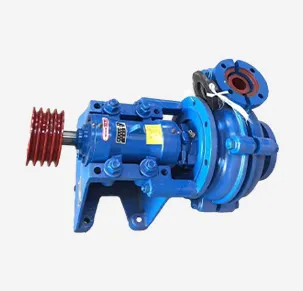Icelandic
- Afrikaans
- Albanian
- Amharic
- Arabic
- Armenian
- Azerbaijani
- Basque
- Belarusian
- Bengali
- Bosnian
- Bulgarian
- Catalan
- Cebuano
- Corsican
- Croatian
- Czech
- Danish
- Dutch
- English
- Esperanto
- Estonian
- Finnish
- French
- Frisian
- Galician
- Georgian
- German
- Greek
- Gujarati
- Haitian Creole
- hausa
- hawaiian
- Hebrew
- Hindi
- Miao
- Hungarian
- Icelandic
- igbo
- Indonesian
- irish
- Italian
- Japanese
- Javanese
- Kannada
- kazakh
- Khmer
- Rwandese
- Korean
- Kurdish
- Kyrgyz
- Lao
- Latin
- Latvian
- Lithuanian
- Luxembourgish
- Macedonian
- Malgashi
- Malay
- Malayalam
- Maltese
- Maori
- Marathi
- Mongolian
- Myanmar
- Nepali
- Norwegian
- Norwegian
- Occitan
- Pashto
- Persian
- Polish
- Portuguese
- Punjabi
- Romanian
- Russian
- Samoan
- Scottish Gaelic
- Serbian
- Sesotho
- Shona
- Sindhi
- Sinhala
- Slovak
- Slovenian
- Somali
- Spanish
- Sundanese
- Swahili
- Swedish
- Tagalog
- Tajik
- Tamil
- Tatar
- Telugu
- Thai
- Turkish
- Turkmen
- Ukrainian
- Urdu
- Uighur
- Uzbek
- Vietnamese
- Welsh
- Bantu
- Yiddish
- Yoruba
- Zulu
Telephone: +86 13120555503
Email: frank@cypump.com
des . 11, 2024 11:10 Back to list
basement sewer ejector pump
Understanding Basement Sewer Ejector Pumps An Essential Guide
Basement sewer ejector pumps play a crucial role in maintaining the plumbing systems of homes, particularly those located below the main sewer line. When wastewater accumulates in a basement or a lower-level area, an ejector pump helps to ensure that it is efficiently pumped out and directed toward the property's main sewer system or septic tank. This article will explore the importance, functionality, types, and maintenance of basement sewer ejector pumps.
Importance of Ejector Pumps
For many homeowners, particularly those who have basements that are below the local sewer line, the inability to drain wastewater properly can lead to serious plumbing issues. Traditional gravity drainage systems simply do not work in these situations. A basement sewer ejector pump is vital for preventing sewage backup, which can result in health hazards, property damage, and costly repairs. By using an ejector pump, homeowners ensure that waste is transported safely away from their living areas and into the appropriate sewage systems.
How Ejector Pumps Work
Ejector pumps operate using a simple yet effective mechanism. The pump is typically installed in a sump basin that collects wastewater from connected plumbing fixtures, such as toilets, sinks, and washing machines in the basement. When wastewater fills the basin to a predetermined level, the float switch activates the pump.
Once activated, the pump uses an impeller to create suction, which allows the wastewater to be pushed through a discharge pipe that leads to the home's main sewer line. The pump can handle solids, which is a key feature that distinguishes sewer ejector pumps from sump pumps. By grinding up solid waste, these pumps prevent clogs and ensure smooth transport of sewage out of the basement.
Types of Ejector Pumps
There are several types of basement sewer ejector pumps available on the market, and selecting the right one depends on various factors, including the volume of wastewater produced and the height that the waste needs to be pumped
.1. Standard Ejector Pumps These are suitable for most residential applications and can handle moderate levels of wastewater. They are equipped with features to handle small solids.
2. Heavy-Duty Ejector Pumps Designed for larger homes or commercial applications, these pumps can handle a higher volume of wastewater and larger solids.
basement sewer ejector pump

3. Dual Ejector Pumps In systems where redundancy is important, dual pumps are installed to ensure that even if one pump fails, the other can take over, preventing any potential sewage overflow.
4. Submersible Ejector Pumps These pumps are installed underwater in the sump basin, which minimizes noise and enhances their efficiency.
Maintenance and Care
Proper maintenance of ejector pumps is essential to ensure their longevity and functionality. Here are some crucial maintenance tips
- Regular Inspections Homeowners should conduct routine checks on the pump system to ensure all components are functioning properly. This includes inspecting the float switch, the discharge pipe, and the electrical connections.
- Cleaning the Sump Basin To prevent clogs and odors, it is important to clean the sump basin periodically. Removing debris can help the pump function effectively.
- Check for Odors Unpleasant smells can indicate a problem with the ejector pump or clogged lines. Prompt action should be taken to address the source of any odors.
- Professional Maintenance It might be beneficial to hire a professional plumber annually to inspect and maintain the ejector pump, ensuring that minor issues are detected and resolved before they lead to significant problems.
Conclusion
In summary, basement sewer ejector pumps are an essential component of modern plumbing systems, particularly for homes with lower-level living spaces. Understanding how these pumps work, the different types available, and the importance of regular maintenance can significantly aid homeowners in protecting their living environments from the hazards posed by sewage backups. Investing in a reliable ejector pump and ensuring its proper operation can make all the difference in maintaining a safe and sanitary home.
-
pipeline pump - Chi Yuan Pumps Co., LTD.|High Efficiency&Low Noise
NewsJul.31,2025
-
ISG Series Vertical Pipeline Pump - Chi Yuan Pumps Co., LTD.|High Efficiency, Energy Saving, Low Noise
NewsJul.30,2025
-
ISG Series Vertical Pipeline Pump- Chi Yuan Pumps|High Efficiency&Low Noise
NewsJul.30,2025
-
ISG Series Vertical Pipeline Pump-Chi Yuan Pumps Co., LTD.|High Efficiency&Energy Conservation
NewsJul.30,2025
-
ISG Series Vertical Pipeline Pump - Chi Yuan Pumps Co., LTD.|Advanced Hydraulic Design&Energy-Efficient Solutions
NewsJul.30,2025
-
ISG Series Vertical Pipeline Pump - Chi Yuan Pumps Co., LTD.
NewsJul.30,2025










